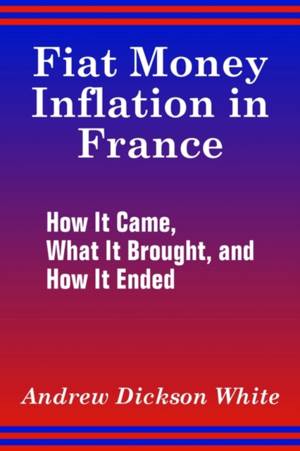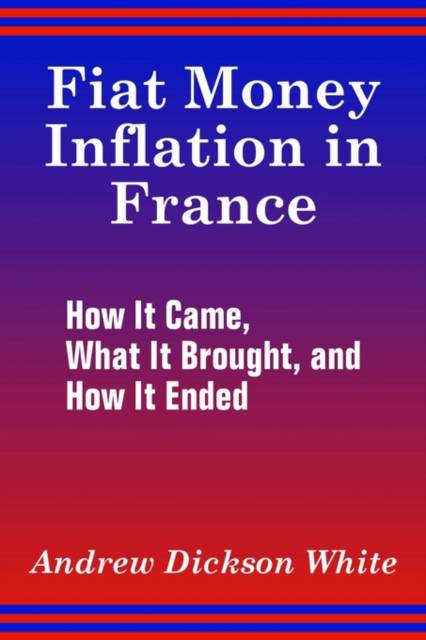
Bedankt voor het vertrouwen het afgelopen jaar! Om jou te bedanken bieden we GRATIS verzending (in België) aan op alles gedurende de hele maand januari.
- Afhalen na 1 uur in een winkel met voorraad
- In januari gratis thuislevering in België
- Ruim aanbod met 7 miljoen producten
Bedankt voor het vertrouwen het afgelopen jaar! Om jou te bedanken bieden we GRATIS verzending (in België) aan op alles gedurende de hele maand januari.
- Afhalen na 1 uur in een winkel met voorraad
- In januari gratis thuislevering in België
- Ruim aanbod met 7 miljoen producten
Zoeken
Fiat Money Inflation in France
How It Came, What It Brought, and How It Ended
Andrew Dickson White
Paperback | Engels
€ 22,95
+ 45 punten
Uitvoering
Omschrijving
In 1790 the French people, by general acquiescence, embarked upon what they believed to be a harmless experiment in currency inflation. The results of this action are vividly described in Dr. Andrew D. White's book entitled Fiat Money Inflation in France - How It Came, What It Brought and How It Ended. Legislatures are as powerless to abrogate moral and economic laws as they are to abrogate physical laws. They cannot convert wrong into right nor divorce effect from cause, either by parliamentary majorities, or by unity of supporting public opinion. The penalties of such legislative folly will always be exacted by inexorable time. While these propositions may be regarded as mere commonplaces, and while they are acknowledged in a general way, they are in effect denied by many of the legislative experiments and the tendencies of public opinion of the present day. The story, therefore, of the colossal folly of France in the closing part of the eighteenth century and its terrible fruits, is full of instruction for all men who think upon the problems of our own time.
Specificaties
Betrokkenen
- Auteur(s):
- Uitgeverij:
Inhoud
- Aantal bladzijden:
- 80
- Taal:
- Engels
Eigenschappen
- Productcode (EAN):
- 9781410205834
- Verschijningsdatum:
- 21/05/2003
- Uitvoering:
- Paperback
- Formaat:
- Trade paperback (VS)
- Afmetingen:
- 152 mm x 229 mm
- Gewicht:
- 127 g

Alleen bij Standaard Boekhandel
+ 45 punten op je klantenkaart van Standaard Boekhandel
Beoordelingen
We publiceren alleen reviews die voldoen aan de voorwaarden voor reviews. Bekijk onze voorwaarden voor reviews.









